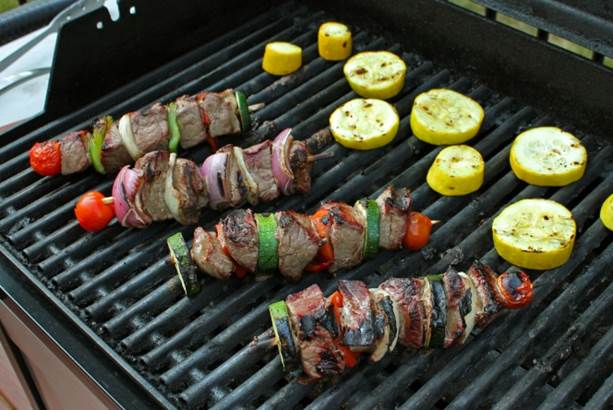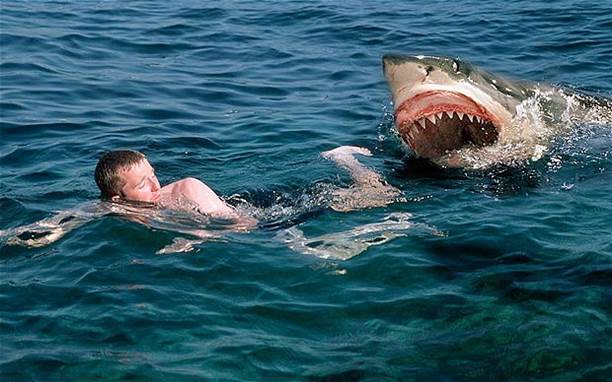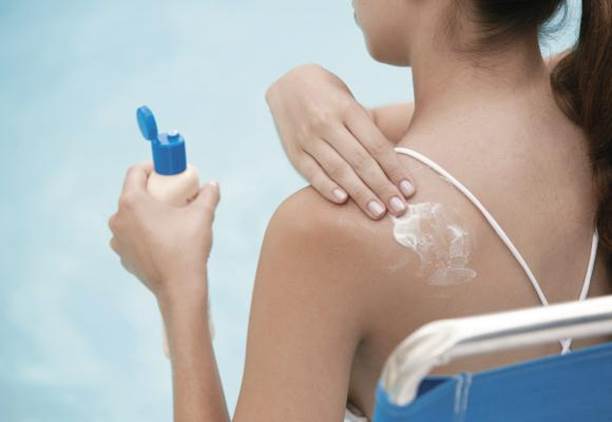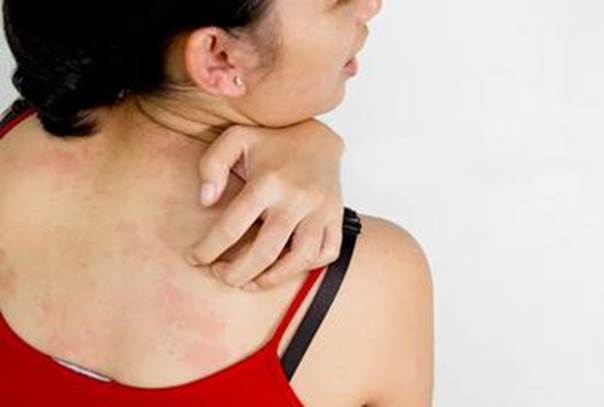Think you’ve got summer sussed? Don’t
believe it! Pip Harry investigates all those persistent warm weather myths and
uncovers the facts
Burnt barbecue meat can be cancerous – TRUE
Taste isn’t the only reason to take your
snags off the barbecue before they become charcoal. Studies have shown a group
of carcinogenic substances called polycyclic aromatic hydrocarbons (PAHs) can
be produced if foods are burnt or overheated.

Taste
isn’t the only reason to take your snags off the barbecue before they become
charcoal.
Although charred or smoked foods could
contain traces of PAHs, experts agree that the amount in the average Australian
diet is too low to be considered a significant cancer risk. However, when
cooking, try to use lower heat methods such as steaming, boiling, poaching,
casseroling, baking, stir-frying or roasting.
Chlorine kills every germ in a swimming pool – FALSE
Chlorine does kill off most germs that
cause illness, eventually. Unfortunately, it can take seven to 19 days for
chlorine to kill the nasty cryptosporidium parasite which causes diarrhea,
stomach cramps and nausea.
Crypto can be killed in a pool, but only by
hyper-chlorination, during which time the pool is closed until the chlorine
levels return to safe levels. The only way that you can avoid the parasite
completely is to avoid drinking the water or swimming in public pools.
Swimming at dusk and dawn is more dangerous – TRUE
When the light is dim, there are often more
sharks in the water. Experts advise avoiding swimming when it’s dark or at
twilight when sharks are most active and visibility is poor. Shark attacks
often occur in murky waters, when they can mistake humans for fishy prey.

Experts
advise avoiding swimming when it’s dark or at twilight when sharks are most
active and visibility is poor
Another risk, says Anthony Bradstreet,
public safety and education coordinator for Surf Life Saving Australia, is
you’re on your own. “The biggest risk about swimming at dusk and dawn is that
there are rarely lifeguards watching the water. Many people drown every year by
swimming outside of the patrolled hours.”
Weeing on a jellyfish sting helps ease the pan – FALSE
Urinating on a jellyfish sting to ease the
pain is an old wives’ tale, says Bradstreet. “Non-tropical jellyfish stings
(such as bluebottles) should be treated by immersing the area in warm water,
followed up by applying ice. Generally the pain will recede after 30 minutes,”
he says.
“Stings from tropical jellyfish (box
jellyfish, irukandji) can be deadly, however. Maintain the patient’s airway and
breathing and seek urgent medical assistance by calling triple zero. You should
also flood the stung area with vinegar (not urine) for at least 30 seconds.
“Vinegar can be found attached to signage
in most populated areas in the tropics.”
Olive-skinned people need less sunscreen – FALSE
SunSmart manager Jen Makin warns that
having darker skin won’t give you any extra protection from skin cancer.
“People with all skin types are at risk of skin cancer – whether you are fair
or olive-skinned, you still need to protect yourself from overexposure to
ultraviolet (UV) radiation.”

“People
with all skin types are at risk of skin cancer – whether you are fair or
olive-skinned, you still need to protect yourself from overexposure to
ultraviolet (UV) radiation.”
Makin suggests combining sunscreen with a
hat, shade and sunglasses. “Apply sunscreen evenly to clean, dry skin 20
minutes before going out into the sun and reapply all sunscreens every two
hours, or more often, when sweating.” If you’re wondering how much cream to
apply, use the ‘sunscreen calculator’ on the free SunSmart app (for iPhone and
android smartphones) which will tell you the approximate amount of sunscreen
required for one application, based on your size and clothing cover.
Scratching an insect bite makes it worse – TRUE
Your mum was right: scratching an insect
bite really does make it worse. Bacteria from underneath your fingernails can
cause a skin infection and the act of scratching causes the skin to release
more histamine, which leads to more itching and swelling.

Instead
of itching, rub the bite with an ice cube to bring down inflammation and numb
the sting
Instead of itching, rub the bite with an
ice cube to bring down inflammation and numb the sting. If you keep your hands
off, in most cases the irritation from the bite will quickly disappear.
Eating garlic wards off mosquito bites – FALSE
Scientists say there’s no point loading up
on garlic prawns at a summer barbecue in the hopes of avoiding mozzie bites.
Eating the pungent bulb won’t prevent an attack.
Researchers at the University of
Connecticut asked a group of people to consume high amounts of garlic on some
days and a placebo on others. They exposed the subjects to mosquitoes and found
no difference between the number of bites on the garlic or non-garlic days.
So what does ward off the bloodsuckers?
DEET-containing repellent (which blocks the mosquito’s sense of detection) and
avoiding alcohol. Studies done on beer drinkers in the US found they attracted
more bites thank non-drinkers.
You shouldn’t swim for an hour after eating – FALSE
You might not want to eat a burger with the
lot minutes before diving into the ocean, but Bradstreet says there isn’t any
clear evidence to suggest swimming after eating is an issue. “The common
misconception is that it can cause cramps, but there just isn’t anything to
support it. It’s up to the individual, as long as they feel comfortable, to go
into the water!”

You
shouldn’t swim for an hour after eating
Salt water helps to heal a wound – FALSE
Salt water (saline) is good for cleaning up
infection, so dunking a wound in the sea is a good idea, right? Well, not so
fast. The salt water needs to be sterile to do its magic, and these days most
bodies of water are fat from pristine and can be teeming with bacteria – either
naturally or due to human activity.
Particularly risky open water spots are
those near rocks or coral, or close to fisheries, mines, farms, stormwater
drains or sewage plants. Think twice about swimming straight after heavy rain,
which causes dirty run-off into the water.
If you cut
yourself in the ocean, exit the water quickly; clean the cut with sterile
saline and dress it with an antiseptic cream.
The try to keep it dry until it’s properly healed.